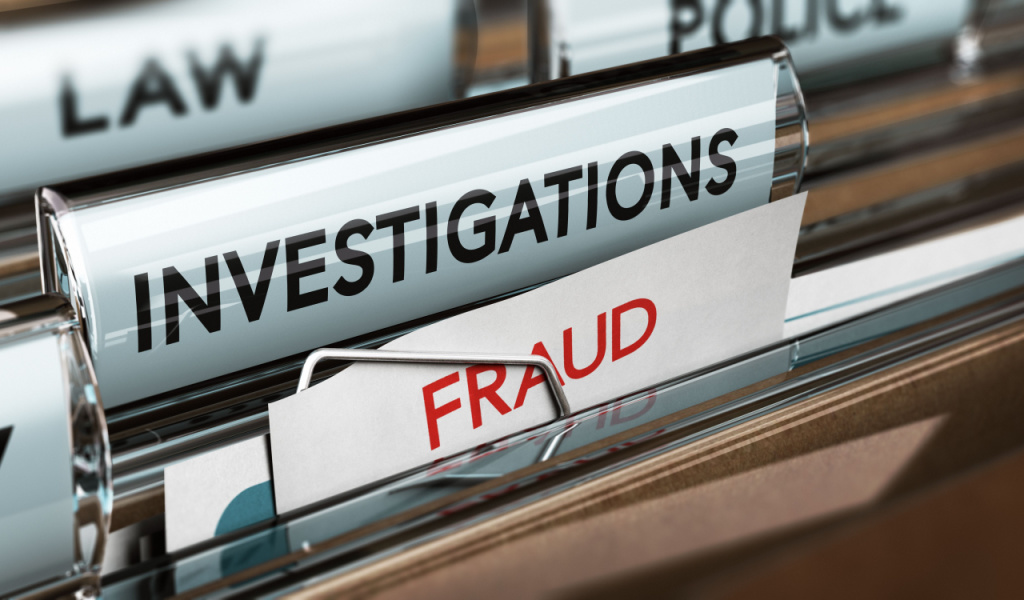Insurance fraud is a severe problem, particularly in the US. Fraudsters are becoming increasingly creative with their tactics, like pretending to lose an expensive piece of jewelry or a vehicle or even staging car accidents. Yes, you read it right! For example, it’s not uncommon for a motorbike rider to apply the brakes suddenly or a pedestrian to walk erratically, intending for another vehicle to hit him so he can fake an injury. There are also cases of fraudsters faking a vehicle title for an expensive luxury car and reporting it stolen to file a claim. These frauds are not just limited to car or property insurance but even health insurance and workers’ compensation. In fact, these insurance rip-offs cost Americans about $80 billion a year.

Therefore, insurance companies and agents work tirelessly to stop these frauds by employing many tactics, including Artificial Intelligence. Claims are investigated thoroughly, and if you have been found guilty of submitting a fraudulent claim, you might have to pay massive fines or even serve jail time.
Here are ten methods insurance agents use to filter fraudulent claims:
Careful Analysis of Claims History
If you have submitted a lot of claims or claimed multiple losses in the recent past, it comes off as a serious red flag to insurers. Therefore, they will investigate anything you submit very carefully. This applies particularly to car and homeowners insurance.
Insurance companies also work to distinguish if there are any specific patterns in your previous claims. Many people don’t realize this, but they keep a detailed record of allegations and perform exams to understand the data it contains. So, if your claim does not align with the usual pattern, they can spot it quickly.
Hiring Private Investigators
You may have seen movies or read books about someone faking injury after a car accident and giving a false statement to the authorities to claim insurance money. Insurance fraud that involves vehicle accidents that cause either fake or actual injury have scams that work in many ways.
Often, those who are involved in this are likely to perform the same scams repeatedly. So, if insurers notice a particular provider that submits many claims for accident victims, they may consider it a warning sign.
Some insurance companies hire private investigators to research the background of the claimants by going through criminal records or interviewing claimants and witnesses.
Checklist of “Suspicious Loss Indicators”
The NICB, or National Insurance Crime Bureau, has a list of 23 suspicious loss indicators. These are items within a claim that suggests that it could be fake. Some of the suspicious loss indicators they look for are:
- When an individual submits handwritten receipts for repairs.
- When the person who filed the claim appears very calm even after submitting a report for something tragic or devastating.
- When a person increases car or homeowners coverage just before submitting a claim.
Of course, the above can sometimes be legitimate, but just to be sure, insurers try to investigate them further to rule out any fraud.
Use of Advanced Technology to Detect Suspicious Billing
Fraud often occurs through billing, especially in medical claims. Hospitals or physicians can bill insurance companies heavily for services that were never provided in the first place. For instance, when insurers are billed for services that were not required medically, it is a fraudulent claim. The same applies to auto repairs, too, and insurance companies use advanced technology to detect claims where repairs do not match the claim data.
Handing the Case Over To a Special Investigation Unit (SIU)
Most insurance companies have their own SIUs, who are very well-trained. SIUs are usually police officers or detectives, and they carry out many tests to identify and discover anyone who attempts to commit fraud.

Analyzing Credit Histories Of Prospective Employees
Did you know that insurance fraud doesn’t always happen from external sources? In fact, the insurance provider’s own staff members could be guilty of it, too. One example is when unethical employees try to leach money off the top. Therefore, intelligent insurance companies will generally run credit checks on all their prospective employees, and anyone who has bad credit or a history of financial issues will be flagged as being more susceptible to committing fraud.
Using Social Media to Look For Fraudulent Claims
Insurers use social media to check on suspicious claims. It could be possible that the claimant who said their vehicle was hit by an accident will be bragging about the deception on social media or even upload a video on YouTube showing how to claim falsely on a car accident. You might wonder if people can be so bold, but it’s a reality, and insurance companies have caught several frauds this way!
Eyewitness Testimony
Having eyewitnesses to an accident has many advantages, the best of which is that they will be neutral in giving an accurate report of what actually happened. Therefore, eyewitness testimony can be a helpful tool in identifying if the claimant is being truthful or if they are altering details of the accident to enhance the claim.
Having More Victims
Many fraudulent claimants will try to portray as if there were many people in the vehicle at the time of the accident to increase the compensation amount. Investigators will carefully look into the accident scene and provide a report complete with all details, including the number of victims. If the victim’s testimony is not in parallel with the police report, it could indicate insurance fraud.
Seeking Help from the Public
Contrary to what many think, insurance fraud isn’t only an issue for insurance companies; it’s everyone’s problem. As per statistics, non-health-related insurance fraud costs are over $40 billion a year, and you’re covering for it by paying annual premiums of $400 to $700 more than if there was no fraud at all.
Naturally, this causes rage among the public, so insurers are being more vocal about asking their clients to help them by checking bills to ensure that there are no errors in the charges, either intentionally or unintentionally. They also encourage people to be wary of doctors who push them to file for a personal injury claim even if they were not injured.
Conclusion
Insurance fraud is a serious crime, and there are harsh penalties associated with it. While you may think you can benefit from it, the risks are far more significant. So, if you’re considering committing insurance fraud, remember that the consequences could be far worse than you could ever imagine!



